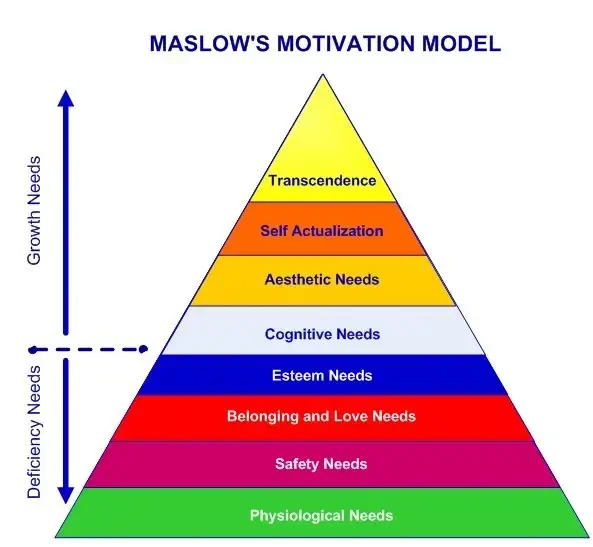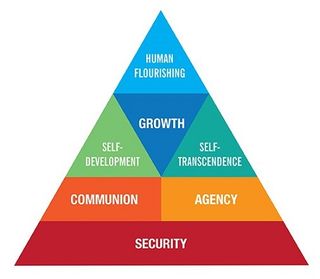Why do players int?
In gamer terminology, to “int” means to intentionally feed, that is, to basically give up and allow your opponent to kill you repeatedly. Sometimes the term is used loosely, when a player might exclaim, “I’m totally inting” when he makes a poor play. But originally (and still) it can mean when someone isn’t trying at all, and in fact is helping the opposing team as much as they can. In this post I’d like to discuss that extreme form of inting.
Why do your teammates give up, try to lose, and intentionally feed kills to your opponents? Let’s examine player agency.
Anyone who has played MOBA-style games, where you have to coordinate with your team to secure a win against the opposition, has had this happen to them. The game has barely started, and a couple of unlucky plays has put you behind. The game is still winnable, a comeback is not at all out of the question, but then one of your teammates declares “I’ve had enough!”. They start making poor plays. They die over and over to their opponent, building their lead and making it harder for you to come back. They stop communicating, except maybe to complain about the state of the game in general, or the teammates they are saddled with, or how inevitable your upcoming loss will be. Eventually, their self-fulfilling prophecy comes true as your opponents’ lead becomes insurmountable.
Congratulations, you have an inting teammate.
Why do people give up so easily? A common explanation is that they have a “weak mental” game, but that’s simply putting a label on it; it’s not a very satisfying explanation. I’d like to go a bit deeper and try to explain the phenomenon of inting as a coping mechanism related to player agency.
Human Needs and Motivation
People are motivated by their needs. If we’re seeking to know what motivates people to int, we should ask what unmet need they are satisfying when they throw away games.

You may have seen the Maslow Hierarchy of Needs before. Abraham Maslow came up with it in 1943 to try and explain human motivation. The basic idea is that people try to satisfy their base needs first, and then after they have achieved that they move up the pyramid to more complex, loftier goals. (The familiar pyramid actually came later; Maslow never drew it that way but simply listed the needs in order). So people first need physiological needs like food and water, and then safety needs like health and financial stability, and so on up the chain.

A more modern approach to human motivation compresses all of Maslow’s physiological needs into security needs at the base of the pyramid. And on top of that, two types of needs that I think are crucial in describing how players think about MOBA gameplay: communion and agency.
Communion versus Agency
Communion needs are the needs you experience that are related to fitting in with your friends, your society, and people in general. This includes the need for love, the need to belong to a group, and the need to feel like you are a part of your overall culture. In contrast, agency-related needs deal with things like improving yourself, achieving personal goals and mastering skills.
In psychological terms, sense of agency is “the feeling of being in control of your life”. Agency needs can be very powerful sources of motivation. The sense that agency is being lost can drive a person to switch majors in college (if they feel they aren’t getting ahead in their current studies), or to quit their job (if they feel they aren’t making a difference). Active duty soldiers returning home can lose their sense of agency when they are no longer permitted to act in ways that were appropriate only on the battelfield. Physiologically, losing ones sense of agency and not adapting or responding to that loss can lead to fatigue, chronic pain, headaches, and a host of “it’s all in your head” symptoms.
Communion and Agency in League
To bring this back to League of Legends, let’s go back to the year 2012. This was the third season for League of Legends, and League was a game with a sharp focus on player agency. If you were good at League – if you had the mechanics, the skills, you could completely take over the game. It was possible to take a slight edge and snowball it, becoming more and more powerful until you could “1v9” – in theory, take on and defeat every other player in the game at the same time. If you were a good player, this felt amazing. The game rewarded your individual skill by making you even more powerful, and you had complete control over the game.
But starting around 2013, Riot Games decided they wanted to change the way League was played. Every game of League is a match between two teams of five players, and Riot wanted to emphasize the team aspect of the game more. So they scaled back on some of the snowballing, introduced some catch-up mechanics for when a team or player was behind, and in general tried to emphasize champion tactics that required corrdination and teamwork.
In short, they increased the benefits for communion skills and decreased the rewards for skills based solely on player agency.
This brought a sharp backlash from the player community. Players hated the fact that they could no longer “1v9”. They hated being stuck with bad teammates (most matches in solo queue have teams that are randomly assigned). They complained that games were no longer decided by which team had the best player, but instead which team had the worst.
When examined in the context of a MOBA like League, communion and agency are in conflict. While it’s possible for a game to reward both communion and agency (and this is what League tries to do), increasing the rewards for one set of skills will decrease the rewards for the other. In a skills-based competition, there’s only so many ways that a player or team can be rewarded. Trade-offs have to be made, and game designers have to decide what type of game they’re trying to make.
Inting as a Form of Agency
So what does all this have to do with inting? I see inting as a way for players to restore their sense of agency. The thought process goes something like this:
- “Oh my God. My Jungler is so bad. He just died three times in the first three minutes”
- “Why do I keep getting these awful team mates? I can’t win with teams like this.”
- “Now my bot lane is getting wrecked. Welp, this game is lost, nothing I can do.”
At this point, the player feels a loss of agency in determining the outcome of the game. But while he feels he has no chance to use his skills to win the game, he can still exercise agency to lose the game.
When a player intentionally throws the game, feeding kills to the opposing team, he is exercising his ability to make the game impossible to win for his teammates. It’s something they can do. Perhaps they can not choose their teammates, or perhaps their own skill is insufficient to beat their opposing member, but the one bit of agency they have left is the ability to ruin the game for their own team. For someone who can feel their agency slipping away, any chance to regain it feels sweet as nectar. And when their own teammates complain, beg and plead for them to at least try to play, those lamentations are the icing on top. Each complaint is proof that the actions the inting player is taking are actually having an effect. It’s a demonstration of their agency, of their ability to control the game.
How to Solve Inting
If you have an inting teammate, you shouldn’t encourage them. And by encourage I mean acknowledge their actions at all. Don’t complain, don’t threaten, don’t even sympathize. Any of those actions will be seen as validation by the inter. You need to instead focus on your own play.
For any player who is prone to inting, themselves, there is a simple and effective remedy. But it’s a remedy that I rarely see used in actual play.

Don’t play to win; play to improve.
Don’t play to win; play to improve. It’s a well-worn phrase that most people never fully understand. If someone acknowledges that it even has merit, then it will most likely be taken to mean something along the lines of “Don’t stress out too much about winning. Focus on the long-term improvements you can make in your play.”
But when viewed through the lens of agency, it means much more. When you play a competitive game you are practicing your skills. Your agency-related skills, the mechanical skills you need to improve in order to do better at the game. And this improvement is something that is wholly independent of whether you win or lose the game.
This is what Reiterate tries to do. With Reiterate, you can record clips related to the skills you want to improve, and during each game Reiterate helps you focus on improving those skills. This is agency. This is completely up to you, and it doesn’t matter if you are winning or losing. You are improving. You may not have the agency to pick good teammates, to win the game, or you might even fail, for a while, at your own mechanical skills. But none of that matters. What matters is that you have the agency to improve your skill-set, right now.
If you ever feel frustrated at poor plays by your own team, or by yourself, always keep this in mind. When you’re playing a game like League, you have as much agency as you want. You simply have to decide to take advantage of it.

This post is Part 1 of a series on Agency and Communion. You can read Part 2 here.
